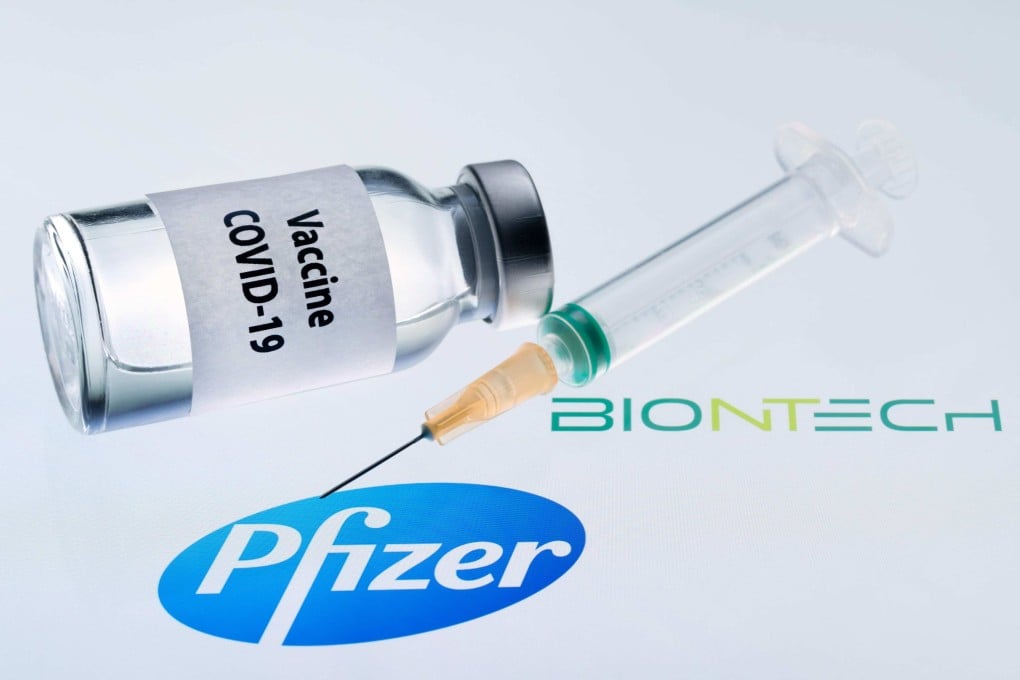Omicron: booster shot of BioNTech Covid-19 vaccine provides enough protection against variant, Hong Kong researchers find
- Study by university researchers finds people’s neutralising antibodies – the first line of immune defence – diminishes three to five weeks after receiving second vaccine shot
- But BioNTech booster shot can elicit sufficient neutralising antibodies against Omicron in most people who took two doses of that vaccine or Sinovac version

A study by a medical team from the University of Hong Kong and Chinese University found people’s neutralising antibodies – the first line of immune defence – diminished three to five weeks after they were inoculated with two doses of either the BioNTech vaccine, co-developed by Pfizer, or the Chinese-produced Sinovac jab.
According to study findings, released on Friday, a BioNTech booster shot could elicit sufficient neutralising antibodies against Omicron in 88 per cent of the 25 people in the study who had received two doses of the vaccine.
Only 3 per cent of 30 previously infected individuals or those vaccinated with three doses of the Sinovac vaccine met this threshold. However, it was found that 80 per cent of 30 people who had previously received two Sinovac shots would have sufficient antibodies against Omicron after receiving a BioNTech booster.
The university team urged countries primarily using Sinovac vaccines to consider adopting BioNTech boosters in response to the spread of Omicron.
But the researchers also noted the Sinovac vaccine had previously been shown to elicit a wider range of virus-specific T cell responses, which might compensate for some loss of neutralising antibody protection.